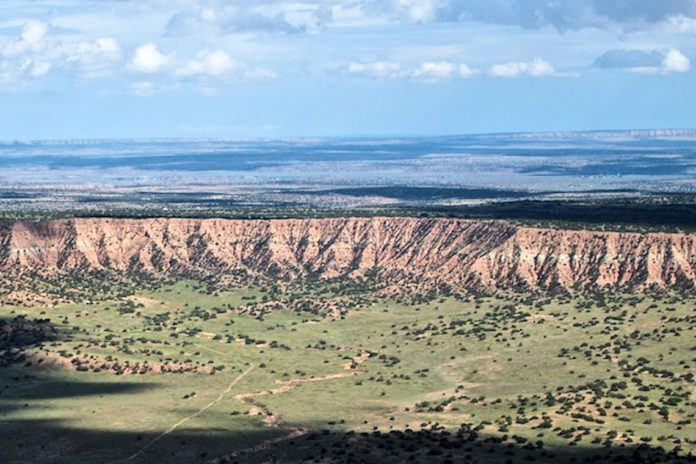A plateau is one of the major landform types on the earth’s surface. Plateaus are areas where the land is elevated and relatively flat. They are found on every continent on the planet. Plateaus may be created by activity that either builds up or wears down the earth’s surface.
Landform Building and Plateaus
Volcanic Origins
Sometimes, plateaus are built up by lava flows on the earth’s surface. Over time, the layers of lava flows builds up the plateau. The Deccan Plateau in India is an example of this type of volcanic origin.
However, the magma does not have to reach the earth’s surface. Pressure from the Earth’s molten material may push the earth’s surface upward. The Colorado Plateau in the United States was created by this type of uplift.
Tectonic Origins
When tectonic plates collide, uplift of the earth’s surface occurs. The uplift may be the result of folding and faulting. The collision of the Indian and Eurasian plates resulted in the uplift of land in Asia. The Tibetan Plateau was created in this manner.
Landform Destruction and Plateaus
Plateaus may be created by weathering. This is the opposite of uplift from volcanic or tectonic activity. Weathering is a wearing down of the earth’s surface by wind, running water, and glacial activity.
In this case, the earth’s surface starts off elevated. Then, running water begins to cut into the earth. Erosion forms large valleys and plains around the original elevated surface. In summary, the plateau is created when surrounding land is worn down around it.
Significant Plateaus in the World
The Tibetan Plateau is the largest plateau in the world. It is about 2.5 million square kilometers in area. In the United States, the Colorado Plateau is a major highland region. The altiplano of the Andes Mountains is a major highland plateau in South America.
Reflections
Vocabulary
- faulting
- folding
- volcano
Notes
- Plateaus are a flat and elevated part of the earth’s surface.
- They may be formed by volcanic and tectonic activity that build up the earth’s surface.
- Plateaus may also be formed by weathering away the surrounding surface.

